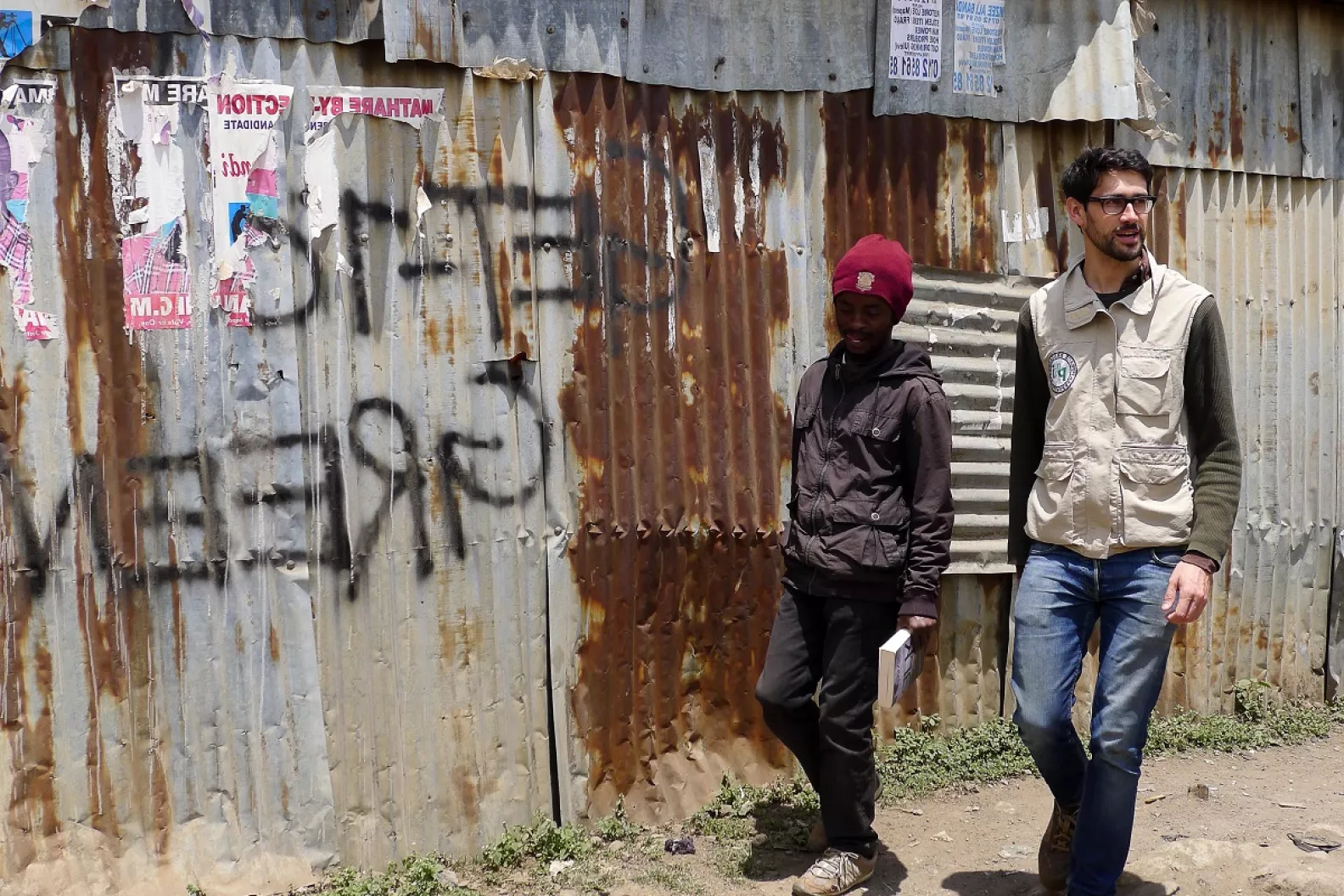
In 2009/10 PBI assessed the protection needs of human rights defenders across Africa to identify countries where PBI’s methodology of international protective presence may be appropriate. The research pointed to a clear demand from defenders in Kenya. In 2011/12 we undertook an in-depth assessment to determine whether we could establish a field project in Kenya. We went to Kenya to talk to human rights defenders, to find out what their protection needs were, and whether protective accompaniment would be effective in the country. PBI established a project in Kenya in December 2012, to provide support and protection to human rights defenders during a period of expected heightened risk during the March 2013 presidential elections. PBI currently has a team of 6 people on the ground in Nairobi.
Visit PBI Kenya project's website
See news and articles related to Kenya
Grassroots Human Rights Defenders
Grassroots Human Rights Defenders (GHRDs) and social movements play an important role in Kenyan Civil Society. GHRDs are often the ones present on the ground, documenting cases, collecting evidence and speaking to victims and community members. As such, they are very visible and vulnerable to possible aggressors, but may lack the resources and the networks to provide for adequate protection. Since its inception, PBI Kenya has been providing solidarity and protection to GHRDs and support to social justice processes. Additionally, PBI Kenya continues to actively increase the reach and visibility of GHRDs in Nairobi's urban settlements.
Women Human Rights Defenders
Women and minority rights activists around the world are working to create positive change in their communities. Women human rights defenders face many of the same challenges as their male counterparts. However, many face additional obstacles and threats because they challenge the status quo twice over – through their work and by challenging (by their very existence) accepted norms, traditions, perceptions and stereotypes about femininity, sexual orientation and the role and status of women in society. As a result, they are vulnerable to threats, stigma, rejection by family and community, and violence.
Exiled Human Rights Defenders
Since early 2016, PBI Kenya has been engaging with Exiled Human Rights Defenders (EHRDs) who have sought refuge in Kenya. Many EHRDs have been targeted by their respective governments due to their human rights work. EHRDs face a series of challenges while living in exile as refugees, including security and protection threats, issues related to seeking asylum, resettlement and documentation, access to resources and services, language barriers and psychological trauma. While some of their difficulties are also experienced by the general refugee population, there are certain challenges that are unique or heightened for EHRDs.
For more information regarding the needs and challenges of EHRDs, read PBI Kenya's report "Enhancing Support for EHRDs in Nairobi". PBI Kenya is currently evaluating its ability and resources to support EHRDs in order to assess the immediate protection needs and challenges that the EHRDs from the region, including Burundi, DRC, Ethiopia, South-Sudan and Sudan face.
Defending Land Rights, Natural Resources, and Culture
With the increasing global reduction of land and resources there is a growing focus on the interaction between Business and Human Rights (B&HR). Kenya is no exception and also struggles with cases of land grabbing, diminishing natural resources and the involvement of private companies in human rights violations. PBI Kenya has been supporting various HRDs and communities with cases that concern access to ancestral land, issues relating to (recognition of) land titles and malpractice or even threats made by business entities.
Organizations Challenging Impunity
PBI accompanies Mathare Social Justice Center, a community-based organization in the poor urban settlement Mathare, Nairobi. The organization strives for social justice by means of community engagement and the use of social movement platforms.
For years, the urban settlement of Mathare has suffered various forms of structural violence, including: land grabbing, forced evictions, police abuse and extrajudicial killings, political impunity, and other economic, social and psychological violations. This violence has been allowed to go on without any retribution to the community, especially as most of the community continues to live in fear of the consequences of standing up for their rights. In order to address these issues, a collective of young community members and experienced social justice activists in Mathare came together in 2015, founding the Mathare Social Justice Center. The MSJC’s mission is to promote social justice in Mathare by means of community engagement and the use of social movement platforms. Since 2015, the MSJC has undertaken a number of organizing activities with all cross-sections of the community and have focused on the documentation of extrajuridical killings.
In just two years the MSCJ developed from a loose group of individuals meeting on the streets and in their houses, to a well-organized and powerful voice in the public debate on issues such as extrajudicial killings in the urban settlements, land rights, gender-based rights and many more.
PBI in Kenya has been supporting MSCJ since 2014. See this 2017 research from MSJC for more information: "Who Is Next? A Participatory Action Research Report Against the Normalisation of Extrajudicial Executions in Mathare".
